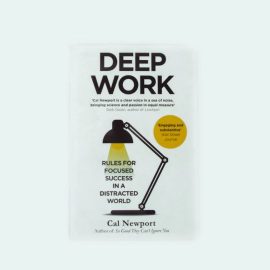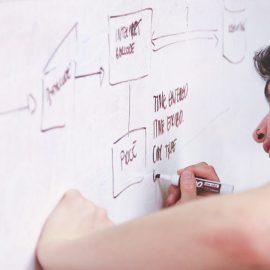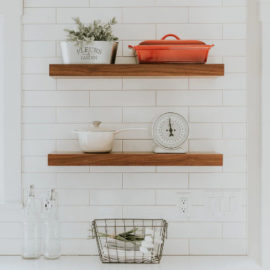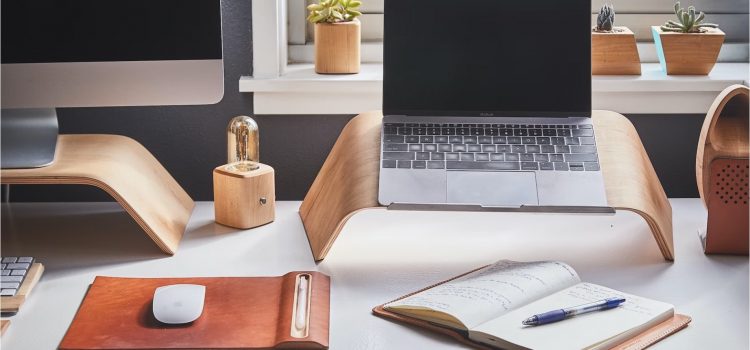
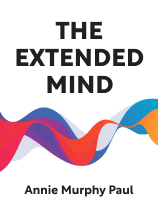
This article is an excerpt from the Shortform book guide to "The Extended Mind" by Annie Murphy Paul. Shortform has the world's best summaries and analyses of books you should be reading.
Like this article? Sign up for a free trial here.
What are the qualities of an ideal workspace? How can you arrange and decorate your workspace to optimize your thinking?
Science writer Annie Murphy Paul claims that creating the ideal workspace is important because where you decide to work has a significant impact on the quality of your thinking. In The Extended Mind, she provides tips for creating a workspace that optimizes your brain’s productivity.
Keep reading to discover how to create the ideal workspace, according to Paul.
Why the Ideal Workspace Matters
In The Extended Mind, Annie Murphy Paul argues that the setting in which you work has a significant impact on the quality of your thinking and thus, the work you do. According to Paul, optimal cognition isn’t about withdrawing deeper into our minds—it’s about engaging more with the world outside of our heads. Intelligence has less to do with our neurobiology and more to do with how well we use the external world to enhance our thinking. In this article, we’ll explain Paul’s tips for creating the ideal workspace, based on her advice in The Extended Mind.
Focus on Privacy
First, your ideal workspace should be private. Biologically, the human brain isn’t suited for abstract, conceptual work, so you need space to deeply focus when undertaking this challenging type of task. If, while you’re working, you see movement, hear nearby conversations, or notice other environmental changes around you, it can easily derail your train of thought.
(Shortform note: In Hyperfocus, Chris Bailey claims that our hunter-gatherer neurobiology not only explains why we’re so easily distracted in the wrong workspace but also why we’re so drawn to multitasking. Constantly noticing new stimuli in our environments helped keep our ancestors alive, so the brain rewards us with dopamine every time we start a new task. Thus, many of us like to constantly switch between multiple tasks while working. However, multitasking in this way makes each task take 50% more time than if it was our sole focus.)
Create a Sense of Ownership
Second, Paul recommends intentionally arranging and decorating your workspace according to your preferences. This improves your thinking in a few ways: Designing your workspace gives you a sense of ownership and control over it, which research shows makes you more confident, more focused, and more successful at accomplishing your goals. Additionally, decorating your workspace in ways that reflect your personality and values serves as a continuous reminder of what kind of person you are. This connection to your identity keeps you comfortable and psychologically healthy, which provides a significant boost to your productivity.
(Shortform note: Just because Paul advocates decorating your ideal workspace with objects that reflect your identity doesn’t mean you should keep everything you enjoy on your desk. Instead, intentionally select just a few personal items so you can keep your workspace tidy and organized. Experts say that just as choosing how your desk is arranged gives you a productive sense of control, intentionally organizing your environment does, too. This is why organization guru Marie Kondo describes tidying up as “a life-changing art”—she claims that the tidying mindset of imposing your values with intention on the world can improve all areas of your life. Additionally, research shows that cluttered, disorganized environments actively drain your mental energy.)
Try to Incorporate Nature
Third, Paul states that your ideal workspace should be as close to nature as possible. The brain interprets lush natural landscapes as safe and prosperous, so spending time in this kind of environment soothes and rejuvenates us. Aside from boosting your mood, spending time in nature will improve your focus and impulse control. Work within sight of lush greenery, if possible, whether that’s next to a window or near indoor plants. Furthermore, occasionally taking time to walk through a natural environment will give you nature’s psychological benefits for some time after you leave.
(Shortform note: In an ideal workspace, even artificial plants have a positive effect on employee health—visually, they’re the same as real plants to the human brain, so they provide many of the benefits Paul describes. They also require much less maintenance than real plants. Outside of work, researchers claim that spending two hours a week in nature is enough to experience its health-boosting benefits. It doesn’t matter how that time is split up throughout the week, and spending more time than this in nature doesn’t seem to provide significant additional health benefits.)

———End of Preview———
Like what you just read? Read the rest of the world's best book summary and analysis of Annie Murphy Paul's "The Extended Mind" at Shortform.
Here's what you'll find in our full The Extended Mind summary:
- Why you don't need to withdraw into your mind to achieve optimal cognition
- Cognitive strategies and habits that will help you better understand complex ideas
- How gesturing with your hands helps you think better


